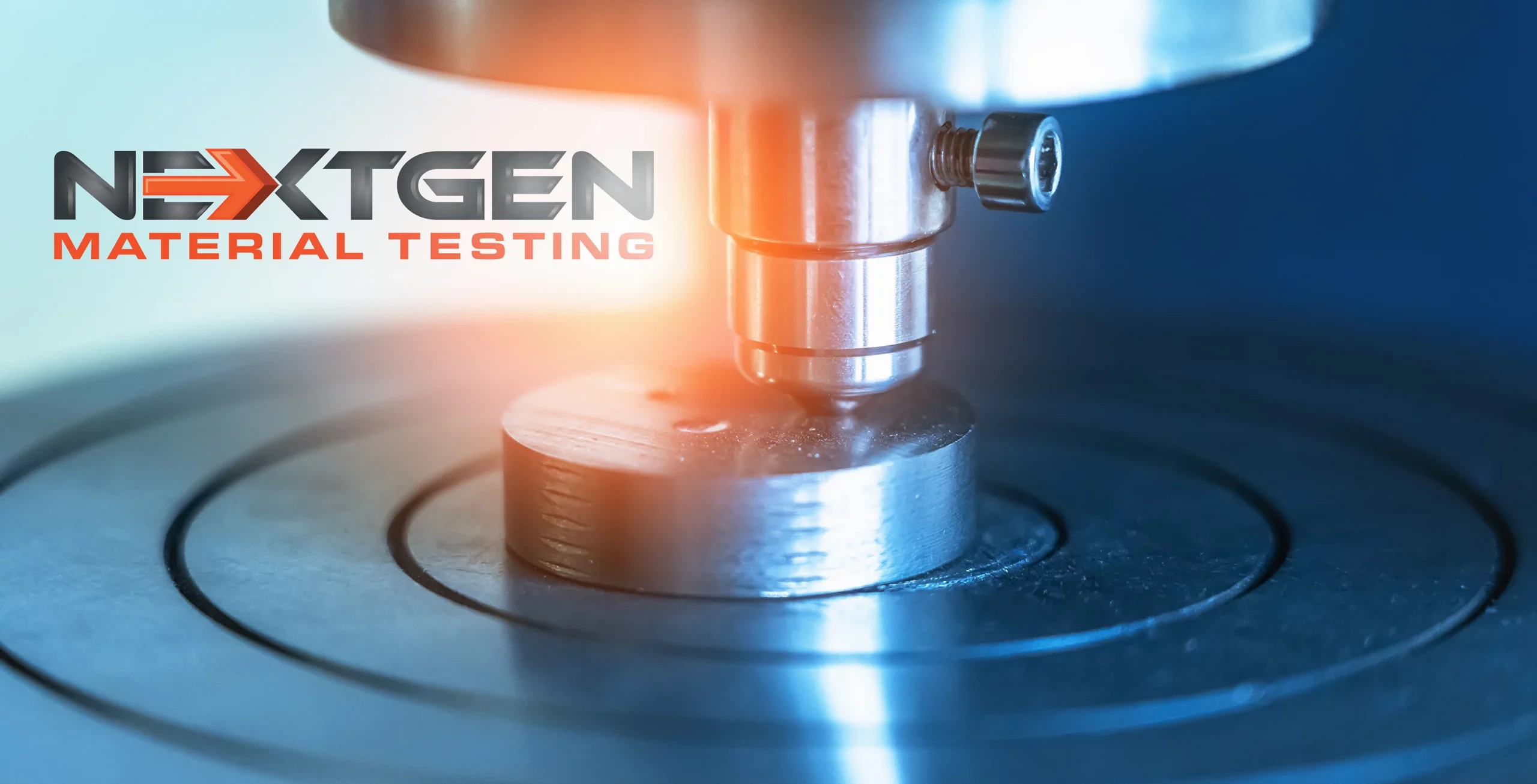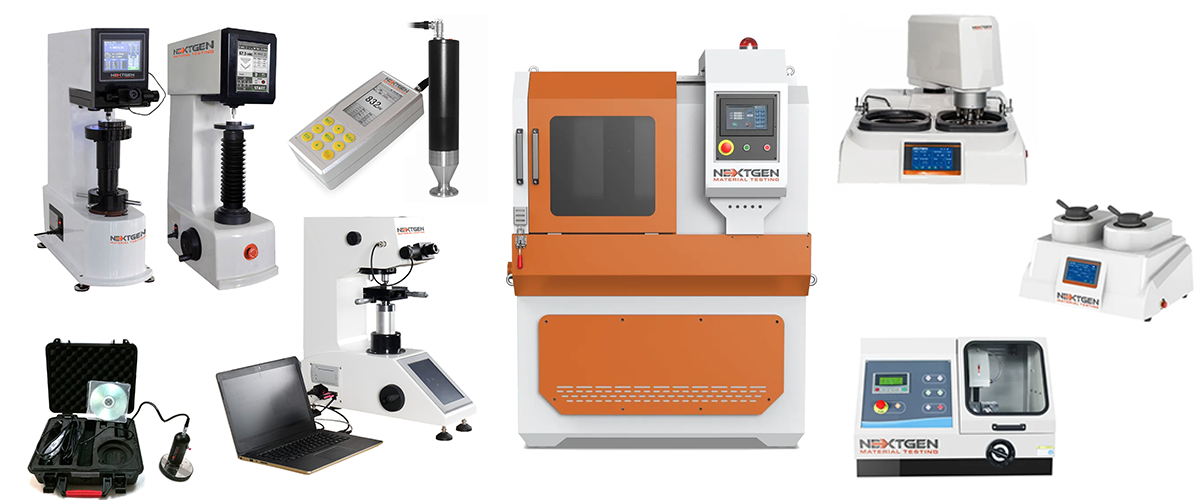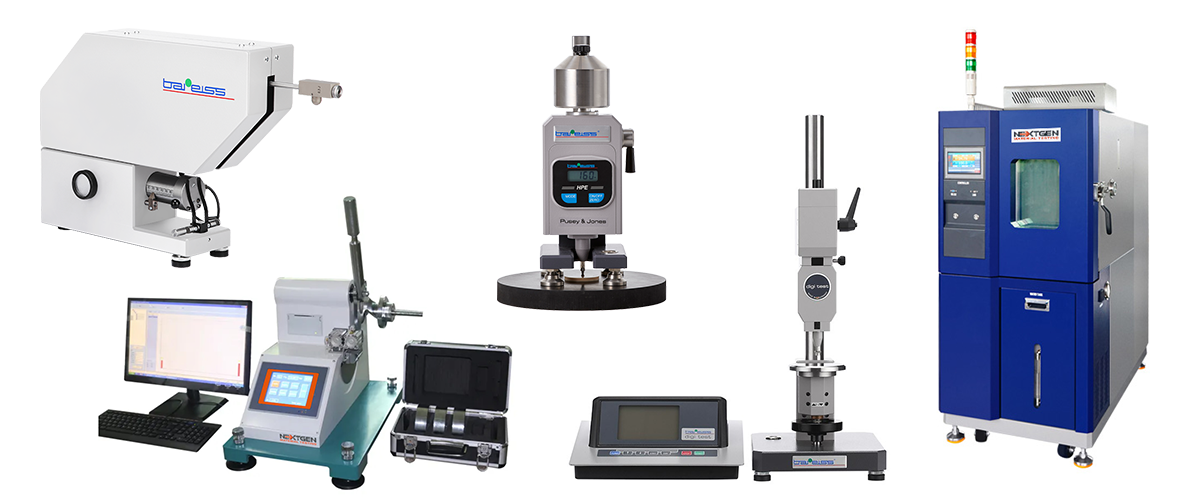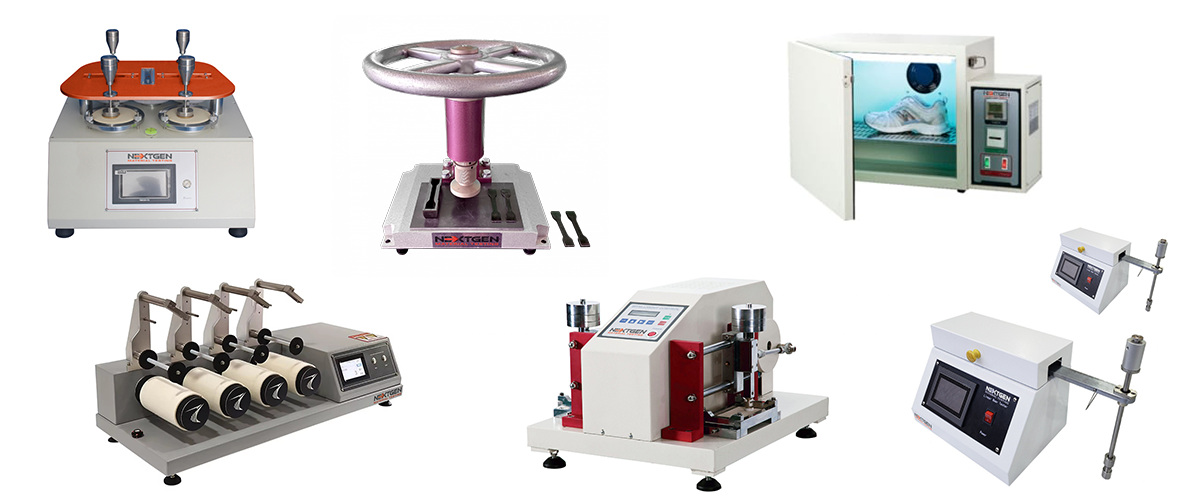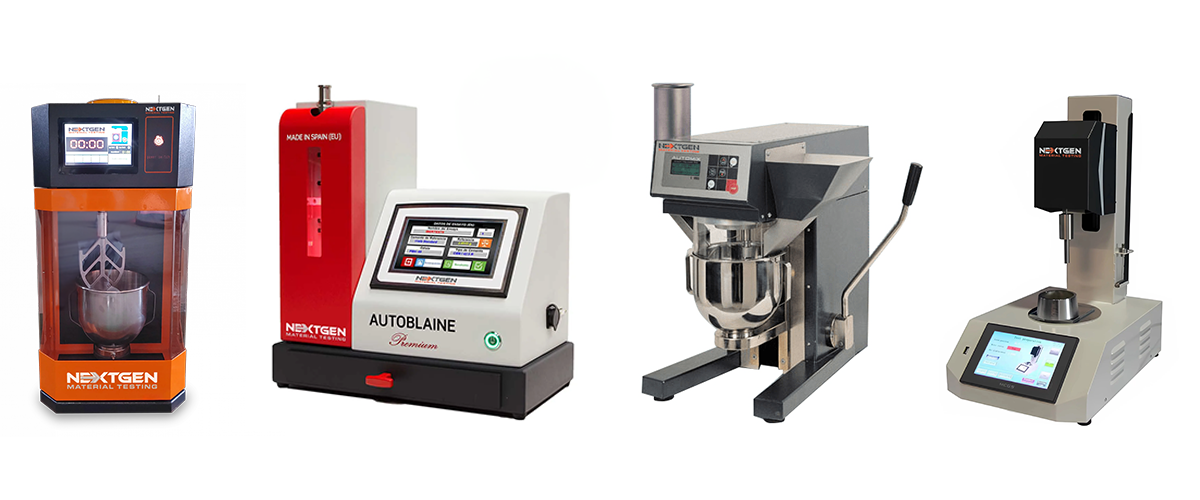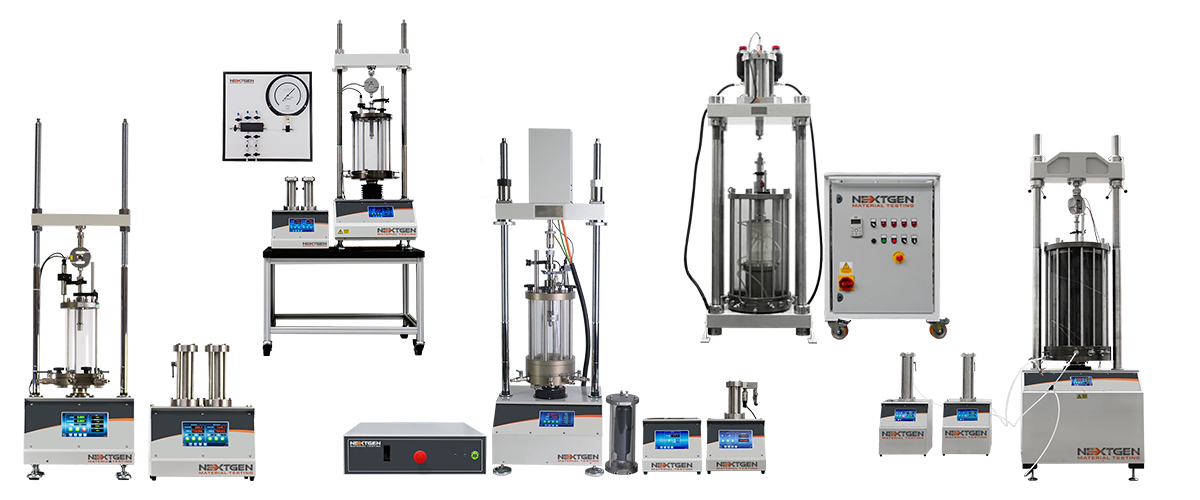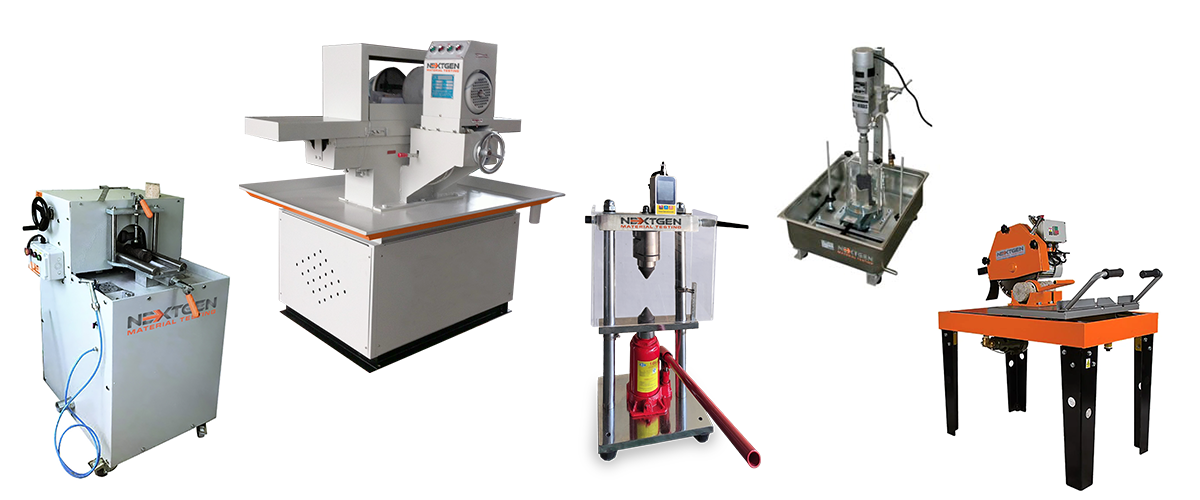Planning to launch a testing lab or upgrade your QC department? Then, finding a dependable supplier is key, and you may already be in the right place. And if you’ve found this page, you’re already halfway there.
NextGen Material Testing Inc. is a trusted supplier of material testing equipment, serving laboratories across North America, Europe, and beyond. We collaborate with universities, research centers, manufacturing plants, and government institutions to develop testing systems that meet both technical requirements and international standards.
In this article, we’ll walk you through who we are, what we offer, and how we support every step of your testing process—from choosing the right equipment to setup, training, and long-term service. If you’re looking for a partner who understands both the technical and practical side of material testing, keep reading.
Material Testing Services Offered by NextGen
 As a dedicated supplier of material testing equipment, NextGen offers more than just machines—we deliver complete laboratory solutions backed by expert support. Our services include installation and training, ongoing technical assistance, accreditation and certification support, access to consumables and spare parts, custom fixtures for unique testing setups, and on-site maintenance options.
As a dedicated supplier of material testing equipment, NextGen offers more than just machines—we deliver complete laboratory solutions backed by expert support. Our services include installation and training, ongoing technical assistance, accreditation and certification support, access to consumables and spare parts, custom fixtures for unique testing setups, and on-site maintenance options.
We also help our clients prepare essential documentation for audits and compliance, and we’re open to discussing integration with laboratory software systems when needed. Whether you’re equipping a new lab or upgrading an existing one, our service model is designed to simplify your workflow and strengthen your results.
Installation and Training Services
We provide professional installation and training services to help your team start using new equipment with confidence. Every system is installed by certified technicians who handle the physical setup, electrical connections, and all necessary testing of components and accessories included in your order.
Once the system is ready, we offer on-site training for up to three operators. This training covers safety protocols, system components, fixture setup, and basic software functionality. Documentation and training resources are included to support a confident start.
We aim to simplify installation so your team can begin testing efficiently and without operational uncertainty.
Technical Support and Maintenance Services
NextGen offers responsive technical support and flexible maintenance services to keep your equipment operating reliably. Whether you need remote assistance or on-site diagnostics, our team is ready to help with fast, informed solutions.
We provide support via email, phone, and secure remote tools. Most issues are resolved within 24 hours. For more complex situations, on-site visits can be arranged by our service technicians to inspect, troubleshoot, and restore functionality.
Preventive maintenance options are also available to help extend equipment life and minimize downtime. With every unit we supply, you receive clear service documentation and direct access to our support team.
Accreditation and Certification Support
We assist laboratories and quality departments in meeting international standards by offering both equipment certification and support for accreditation processes. Our systems are designed to comply with key testing standards such as ASTM, ISO/IEC 17025:2017, and ANSI/NCSL Z540‑1, among others.
For organizations undergoing audits or setting up new testing workflows, we help ensure proper calibration procedures, traceability documentation, and overall compliance. In addition to certifying the equipment we supply, we can guide your team through the accreditation steps required for laboratory approval.
We also provide the necessary documentation to support your internal and external audit preparation, making the path to compliance more straightforward.
Consumables and Spare Parts
To keep your testing operations running without interruption, we maintain a wide inventory of consumables and spare parts for all major systems we supply. We maintain essential components in stock to match your equipment specifications and allow for fast replacement when needed.
Our team can assist you in selecting the right items for your specific equipment model and testing method. Orders are processed quickly, and most items are shipped directly from our North American and international warehouses.
Reliable access to consumables ensures your lab stays productive, without delays caused by missing or incompatible components.
Custom Fixtures and Test Setup Solutions
Every testing application is unique, and we’re ready to meet those needs with tailored solutions. NextGen offers a wide selection of grips, fixtures, and specialized attachments for universal testing machines and other systems. Whether you’re working with non-standard specimens, soft materials, or oversized samples, we provide custom configurations built for your application.
Our engineering team can help match or design the right components to support accurate, repeatable testing. This includes tensile grips, compression plates, flexural jigs, and more—all made to integrate seamlessly with your equipment.
Custom setups allow you to test with confidence, knowing your configuration fits both the sample and the standard.
Software Integration and Special Requests
We understand that some laboratories require integration between testing equipment and external systems such as LIMS, ERP platforms, or custom data workflows. While integration capabilities vary by device, we’re open to discussing your requirements and exploring possible solutions together.
If you have special technical requests, need additional system configurations, or want to align your equipment with existing lab infrastructure, our team is available to support you. We’ll review your needs and provide guidance based on what’s feasible and effective.
Share your technical requirements with us, and we’ll help determine a practical path forward.
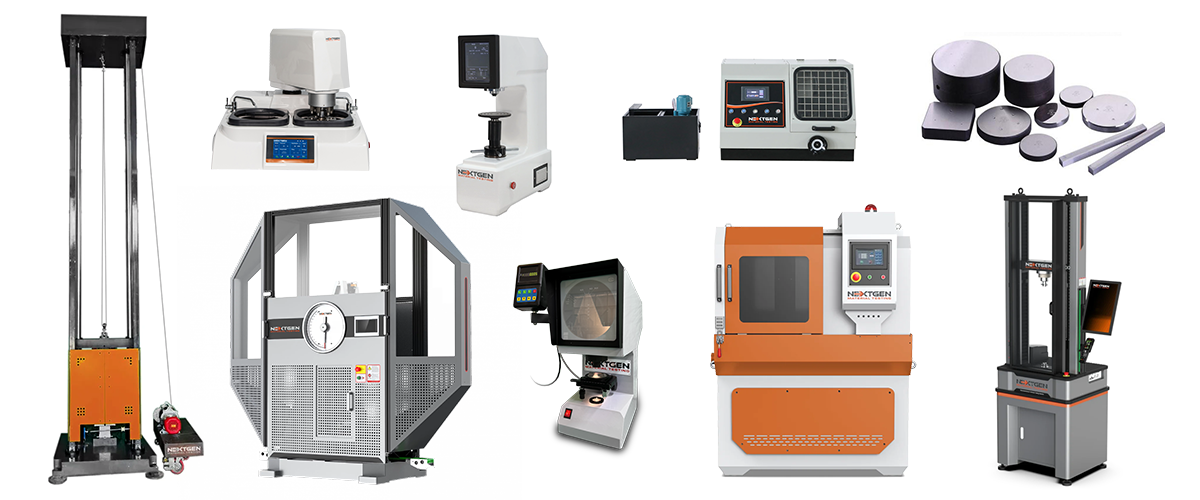
Our Material Testing Equipment Line
At NextGen, our material testing equipment line has been developed through years of direct experience with laboratories across industries. Our catalog reflects continual refinement based on user feedback and updated technical standards. Our team continuously refines existing models, expands categories, and updates equipment to meet the latest technical standards and practical testing needs.
We support compliance with ASTM, ISO, and other leading standards, and many of our systems are used in accredited laboratories worldwide. Whether your work involves metals, plastics, rubber, cement, soil, or rock, we provide specialized solutions tailored to each material, with the supporting accessories, fixtures, and documentation included.
Metal Testing Equipment
Our metal testing systems cover the full process—from specimen preparation to final mechanical evaluation. With the right setup, you can measure hardness, tensile strength, ductility, fracture resistance, and energy absorption under sudden impact. Such tests replicate operational stresses like load fatigue, vibration exposure, and impact events to assess structural reliability.
This type of equipment is widely used in metallurgy labs, manufacturing plants, research centers, and educational institutions. It’s suitable for testing a wide range of materials—from structural steel and aluminum to exotic alloys and welded joints.
Key categories of metal testing equipment include:
- Metallographic Sample Preparation Machines: Designed to prepare specimens for microscopic examination or surface testing through cutting, mounting, grinding, and polishing. These steps align with preparation practices defined in standards such as ASTM E3 and support accurate hardness and microstructure evaluation.
- Tensile Sample Preparation Machines: CNC systems built to produce flat and round specimens for tensile testing. They meet dimensional accuracy and surface finish criteria outlined in standards like ASTM E8 (tensile testing of metallic materials) and ISO 6892.
- Universal Testing Machines (UTMs): Used to apply tensile, compressive, or bending loads and record force-displacement behavior. These machines are commonly used in accordance with ASTM E4 (force verification) and ISO 7500 for load frame calibration and accuracy.
- Impact Testing Machines: Charpy and Izod pendulum testers are used to evaluate material toughness and fracture behavior at various temperatures. They support specimen configurations and energy measurement protocols described in ASTM E23 and ISO 148.
- Metal Hardness Testing Equipment: Available in Rockwell, Brinell, and Vickers methods, these systems help assess surface hardness and heat treatment consistency. They comply with standards such as ASTM E18 (Rockwell), E10 (Brinell), and E384 (Vickers), depending on the chosen scale and application.
- Accessories and Fixtures: A broad range of grips, platens, anvils, and calibration blocks designed to match both standard and non-standard test methods. Custom fixtures are available to support specific sample shapes or loading conditions.
Plastic Testing Equipment
Plastic materials are everywhere—from industrial housings to flexible packaging—and each application demands different mechanical properties. That’s why we offer a variety of systems to help analyze strength, flexibility, surface hardness, and material response under stress or deformation. Whether you’re testing injection-molded components or thin polymer films, our systems support accurate, standard-compliant testing.
Our plastic testing machines include:
- Universal Testing Machines for Plastics: Used to measure tensile, compression, and bending strength. These machines support ASTM D638 (tensile testing of plastics), ISO 527 (tensile behavior), and ISO 178 (flexural properties).
- Shore Hardness Testers: Designed to evaluate surface hardness using Shore A, D, and other scales. Measurements follow standards such as ASTM D2240 and ISO 868, frequently used for seals, buttons, and soft plastic components.
- Specialized Plastic Testing Instruments: Systems like ball rebound testers, fruit firmness devices, and soft material hardness setups—useful for packaging, medical plastics, and non-rigid applications.
Rubber Testing Equipment
Rubber materials demand precise testing—their behavior under load, abrasion, and aging conditions directly affects product performance and safety. Our systems cover both fundamental and advanced test requirements for rubbers, elastomers, and similar flexible materials. Whether you’re working with tires, gaskets, seals, or coated fabrics, we offer the tools to evaluate resilience, deformation, surface integrity, and viscosity.
Our rubber testing systems include:
- Universal Testing Machines for Rubber: Used for tension, compression, and tear resistance evaluation. Commonly applied with ASTM D412 (tensile testing of rubber) and ISO 37, especially for cured rubber samples.
- Mooney Viscometers and Moving Die Rheometers: Instruments for characterizing processing behavior, viscosity, and cure profiles. These systems follow ASTM D1646 (Mooney viscosity) and ASTM D5289 (MDR testing for vulcanized rubber).
- Abrasion Testing Equipment: Includes DIN abrasion testers, NBS testers, and Akron abrasion systems for measuring surface wear resistance. Relevant standards include ASTM D5963 and ISO 4649.
- Shore Hardness and IRHD Testers: For testing surface hardness of soft and flexible rubber parts. Devices comply with ASTM D2240 for Shore methods and ISO 48 for IRHD.
- Weathering and Environmental Testers: Designed to simulate freezing (e.g., GenFreeze), discoloration, and salt spray exposure (e.g., GenSalt)—supporting long-term durability testing and comparison of rubber grades.
Cement and Concrete Testing Equipment
Cement and concrete testing requires accuracy, stability, and consistency—whether you’re evaluating setting time, strength development, or air permeability. Our equipment is built for laboratory and field use, supporting standardized testing procedures for both raw cement and finished concrete products.
Our systems for cement and concrete testing include:
- Vicat Apparatus (Automatic and Manual): Used to determine the initial and final setting time of cement paste. Devices follow ASTM C191 and EN 196-3 for automated and manual operation.
- Blaine Air Permeability Testers: Measure the fineness of cement by evaluating air flow resistance through a compacted sample. Testing is based on ASTM C204 and ISO 9090.
- Mortar Mixers: Ensure uniform mixing of cement, sand, and water under controlled speed and duration, according to testing requirements outlined in EN 196-1.
- Climatic Curing Chambers: Provide controlled environments for curing cement and mortar specimens at specific temperature and humidity levels, critical for reproducible strength testing.
- High-Pressure Autoclaves: Designed to evaluate the soundness of cement under accelerated conditions, supporting tests aligned with ASTM C151 and similar protocols.
Soil Mechanics Testing Equipment
Soil behavior under stress affects everything from foundation stability to road durability. Our equipment is built to evaluate shear strength, consolidation, compressibility, and moisture content — helping engineers make informed decisions about ground conditions in construction, geotechnical, and civil engineering projects.
Our soil testing systems include:
- Triaxial Testing Systems (Automatic and Dynamic): Evaluate soil strength under controlled pressure and axial loading. Systems support ASTM D2850 (unconsolidated-undrained triaxial test), ASTM D4767 (consolidated-undrained), and ISO 17892-9.
- Oedometers (Front-Loading and Computerized): Measure soil compressibility and consolidation behavior under sustained vertical load. Testing procedures follow ASTM D2435 and ISO 17892-5.
- Shear Testing Systems (Direct and Torsional): Used to analyze internal friction and shear strength of soil samples. Equipment complies with ASTM D3080 for direct shear tests and supports torsional methods for advanced analysis.
- Vane Shear Apparatus: Evaluate undrained shear strength of soft clays directly in the lab. Follows guidelines such as ASTM D2573 and is ideal for low-strength cohesive soils.
- Moisture Determination Devices: Includes balances like GenMoist and oven setups to determine water content accurately, in accordance with ASTM D2216.
Rock Mechanics Testing Equipment
Testing rock samples helps evaluate stability, strength, and durability in mining, tunneling, foundation engineering, and geotechnical research. Our equipment supports specimen preparation, uniaxial and point load testing, abrasivity analysis, and more, making it easier to quantify rock behavior under controlled conditions.
Our rock testing systems include:
- Core Cutters, Trimmers, and Drilling Machines: For preparing cylindrical or block specimens from rock cores and irregular samples. These machines simplify compliance with sample geometry requirements in standards like ASTM D4543 and ISRM Suggested Methods.
- Point Load Testers: Quick field and lab tools for estimating uniaxial compressive strength from small samples. Designed around procedures in ASTM D5731, especially useful for screening core material in mining and exploration.
- Uniaxial and Triaxial Compression Testers: Apply controlled loads to evaluate deformation, failure patterns, and compressive strength. Systems support full digital logging and follow guidelines such as ASTM D7012.
- Rock Abrasivity Index Testers: Determine the wear potential of rock against tools, useful for excavation and equipment planning. Instruments support methods like the CERCHAR abrasivity test.
- Rock Specimen Grinders and Polishers: Automatically flatten and finish rock cores to meet precise parallelism and surface conditions for strength and petrographic analysis.
Why Testing Standards Matter in Quality Control
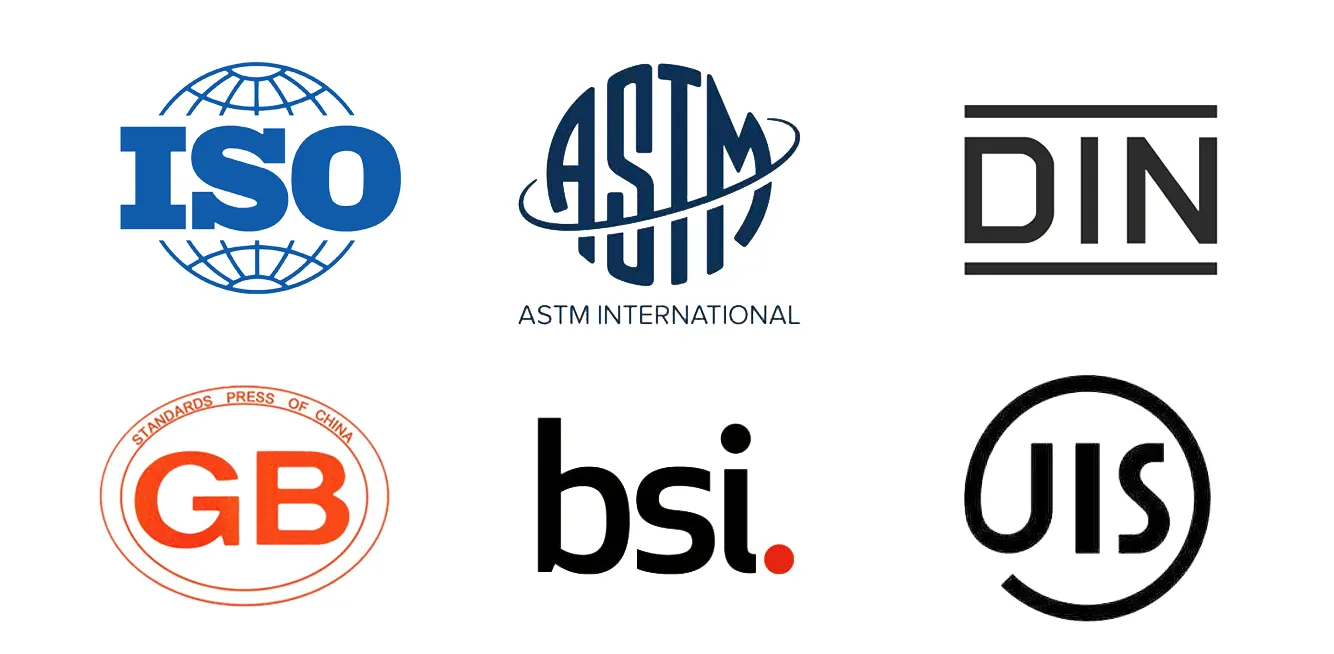 Testing standards are the foundation of reliable, comparable, and legally accepted laboratory results. Whether you’re preparing a tensile specimen, measuring hardness, or running an impact test, following methods defined by ASTM, ISO, or other international bodies ensures that your results are valid, not just inside your lab, but across industries, borders, and regulatory systems.
Testing standards are the foundation of reliable, comparable, and legally accepted laboratory results. Whether you’re preparing a tensile specimen, measuring hardness, or running an impact test, following methods defined by ASTM, ISO, or other international bodies ensures that your results are valid, not just inside your lab, but across industries, borders, and regulatory systems.
Standards like ASTM E8 (tensile testing of metallic materials), ISO 527 (plastics tensile behavior), or ASTM D412 (rubber tension tests) define specimen dimensions, testing speeds, data collection rules, and even failure classification. These details are what allow a certification body, external auditor, or end client to trust your reported values because they know how they were obtained.
When equipment does not conform to relevant standards, results may be rejected during audits or product validation. Non-compliance can delay certification, affect product approvals, and lead to repeat testing. This is especially critical for labs operating under ISO/IEC 17025:2017, which requires documented, standard-based test procedures and equipment traceability.
At NextGen, we build and supply systems that align with the most widely used international standards, and we help our clients maintain that compliance. From initial delivery to calibration documentation and technical consultations, we support your lab’s ability to generate data that is both accurate and accepted.
Global Reach and Availability
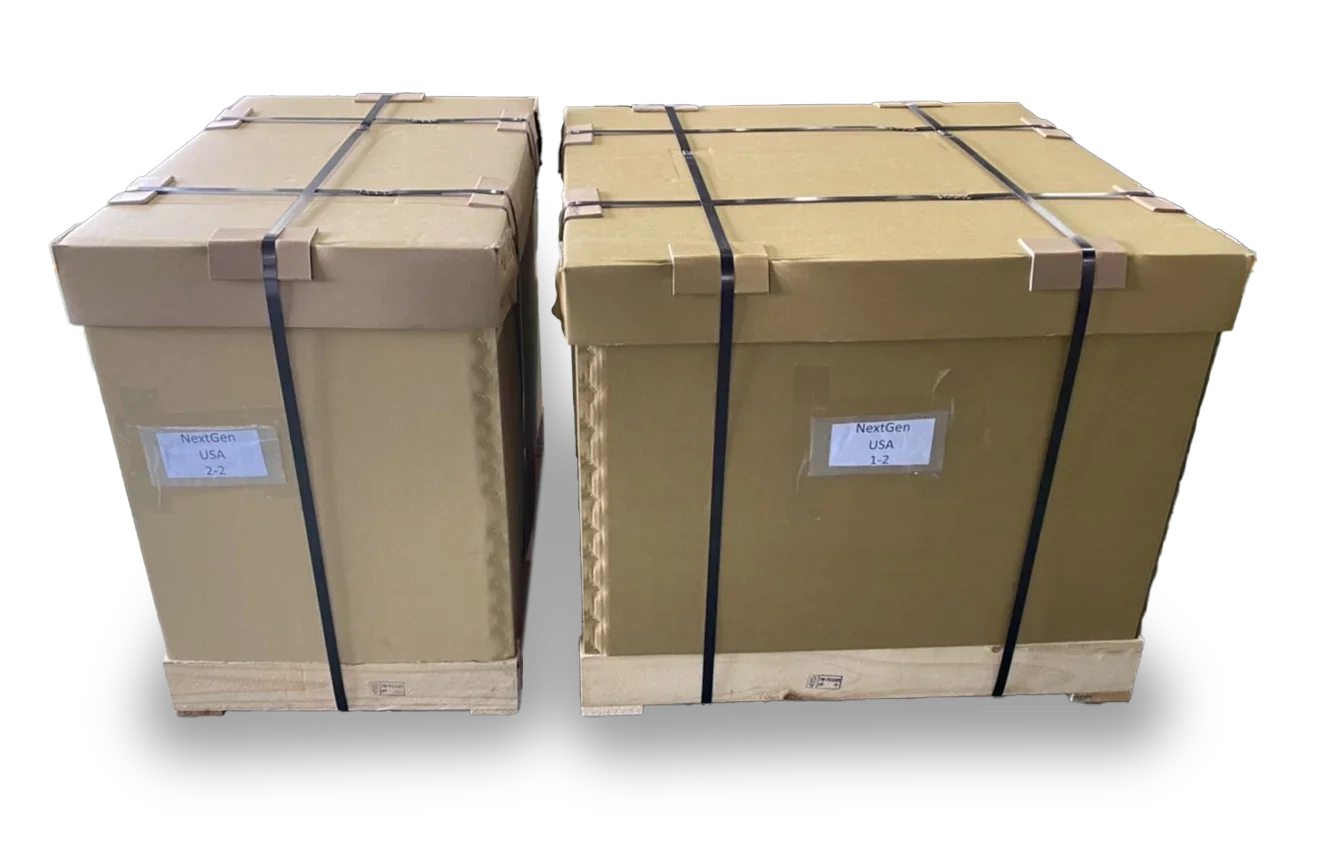 At NextGen, our systems are used and trusted by clients across North America, Europe, and Asia. From small educational labs to national research centers and international manufacturers, our equipment is installed in environments that demand both performance and compliance.
At NextGen, our systems are used and trusted by clients across North America, Europe, and Asia. From small educational labs to national research centers and international manufacturers, our equipment is installed in environments that demand both performance and compliance.
We work with universities, private laboratories, government institutions, and defense organizations—supporting their needs with tailored product configurations, documentation packages, and consulting when required. The trust we’ve built across sectors reflects the consistency of our systems and the quality of service we deliver.
Our global logistics network includes distribution hubs in key regions, allowing us to deliver equipment, consumables, and spare parts quickly and with minimal downtime. Most orders are shipped within days, and we provide full tracking, customs documentation, and local delivery coordination where applicable.
Every machine we supply is backed by a manufacturer’s warranty and access to our technical support team, which offers assistance via email, phone, and remote tools. For clients who require on-site training or emergency service, we coordinate with our network of certified technicians and regional partners to provide fast, localized solutions.
We also understand that international clients may face additional regulatory or procedural steps, and we’re ready to help. Our team supports documentation for customs clearance, import certification, and intergovernmental procurement as needed.
Whether you’re based in North America or expanding operations in Asia or Europe, you can rely on our team to provide both the equipment and the ongoing partnership needed to keep your lab running with confidence.
Ready to Explore Reliable Testing Solutions? Let’s Talk
This article offers just a glimpse into what NextGen Material Testing Inc. can provide. From advanced equipment and full-service lab support to global shipping and expert consultations, we support your efforts to create compliant, high-performing testing environments through reliable equipment and ongoing collaboration.
If you’re exploring equipment options, feel free to browse our product pages for detailed technical information, features, and the standards we support. Interested in services like installation, training, certification guidance, or technical support? We’re just as ready to assist with that.
Whether you’re starting a new lab, upgrading existing systems, or expanding into new testing areas, our team is here to provide clear answers and personalized recommendations. Contact us directly or request a quote online—we’ll help you choose the right path forward and support you every step of the way.
